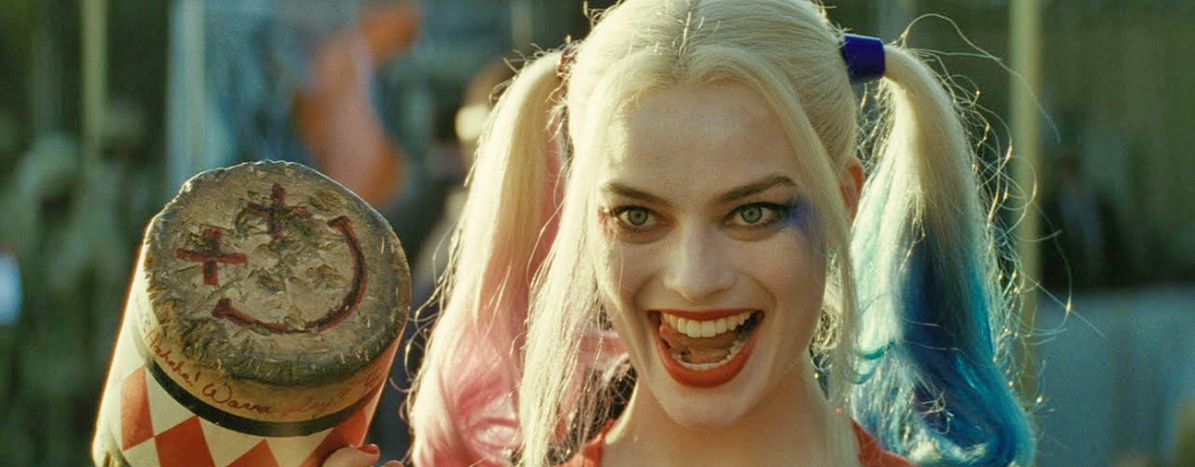
How Hollywood charms with the black magic of marketing
Published on
A depressing number of this year's summer blockbusters have failed to live up to our expectations. Hollywood invested a lot of time, energy and money in selling us these films, neatly wrapped up in the most enticing packaging. Still, a lot of us were left with a bitter aftertaste... [OPINION]
Many movies released in the summer of 2016 were highly anticipated by critics and audiences alike. We were looking forward to seeing Suicide Squad, Jason Bourne or The Legend of Tarzan – just to name a few. The advertising for many of these movies began almost a year in advance. We were strategically presented trailers that kept us on the edge of our seats and could hardly wait to see the finished product.
Alas, many filmgoers felt disappointment seeping through before the viewing was even over. How did this happen? It would be facile to blame it on the high demands of the audience’s preferences influenced by the digital hype machine – but I believe this goes deeper than that.
Hollywood studios appear to be putting in a lot more thought in marketing campaigns as opposed to the movie itself, with the sole purpose of luring audiences into seeing the product.
Why so serious?
Take Suicide Squad for instance, the third in the string of Warner Bros/ DC Comics collaborations (which include thus far Man of Steel and Batman v Superman). For a year it was hyped up as an intense and dark cinematic depiction of Batman’s worst villains teaming up to wreak havoc. The trailers made us leap with joy when we saw Harley Quinn, Deadshot, Killer Croc and the others join forces with the Joker in a slew of thrilling car chases and masterfully choreographed shootouts. The soundtrack released beforehand, also suggested a noir, emotionally charged film. No wonder Warner Bros sold the movie and managed to achieve the record-breaking box-office opening of the month.
What we witnessed, in fact, was superficiality and characters’ lack of depth. Jared Leto's version of the Joker, will remain in our memories as a tattoo-covered, lamé-jacket-wearing, machine-gun-wielding crazy person, nothing more.
Childhoods turned sour
Another movie that left its audiences wanting was The Legend of Tarzan. The high expectation was warranted by the combination of a much-loved childhood tale with state-of-the-art visual effects and an ensemble cast (including Samuel L. Jackson, Margot Robbie, Alexander Skarsgaard and Christoph Waltz). While the trailer gave us little in terms of the plot, it still excited us with thrilling scenes of combat between man and beast before a lush African backdrop.
Sadly, instead of being the epic action adventure it set out to be, it was a confusing blend of stereotypes with action consisting of random plot elements from the original Edward Rice Burroughs novels. The ferocious roaring animals the natives fighting for their freedom from colonial supremacy and, of course the hero who, out to save the love of his life ends up saving everyone in the process, hardly favour the presumably high quality of the film. The actors themselves, all of whom have proved they can tackle challenging roles, were reduced to 19th century archetypes: Waltz was the moustache-twirling villain; Jackson was the reluctant side-kick with a heart of gold and Alexander Skarsgaard, the silent and brooding hero. On top of that the CGI, which was the main selling point in the trailer, was downright unconvincing, even to the untrained eye.
A ray of sunshine in the darkness?
However, not all was bleak this summer when it came to cinema. Jason Bourne lived up to most people’s expectations by delivering exactly what the trailer promised: darkness, realism and intensity. Matt Damon resumed his role as the rogue CIA agent in the 5th sequel of the Bourne series. Together with Tommy Lee Jones and Alicia Vikander, they built up the quintessential tension of any Bourne film and kept the audiences gasping with every car chase and plot reveal.
Of course, this sort of gritty, spy action-thriller may not be everyone’s cup of tea. Even Bourne aficionados complained that the movie didn’t live up to the high standards set by previous sequels. Veterans of the series could spot the recycled themes – henchmen trying to assassinate the main character or the CIA involved in less savoury actions in order to "preserve the welfare of the country." - but for a first-time viewer the disappointment caused by the marketing ploys was rather lessened.
Who's the real villain here?
Some may wonder whether there’s even a point in discussing false advertising since it’s so common in the film industry. Audiences can come across as rather naïve to take for granted a trailer or a poster when the end result could be totally different. But let’s look into it from studios’ angle: the many layers of copyright protection, are shrewdly used to save on the film budget and make profit by shirking some ethical responsibilities.
The end result is a gamble anyway for both viewers and producers. What everybody should bear in mind is that audiences today are a lot more resourceful and savvy than they were 10 or 15 years ago. They are less likely to be fooled by shining lights and pretty music for much longer.



